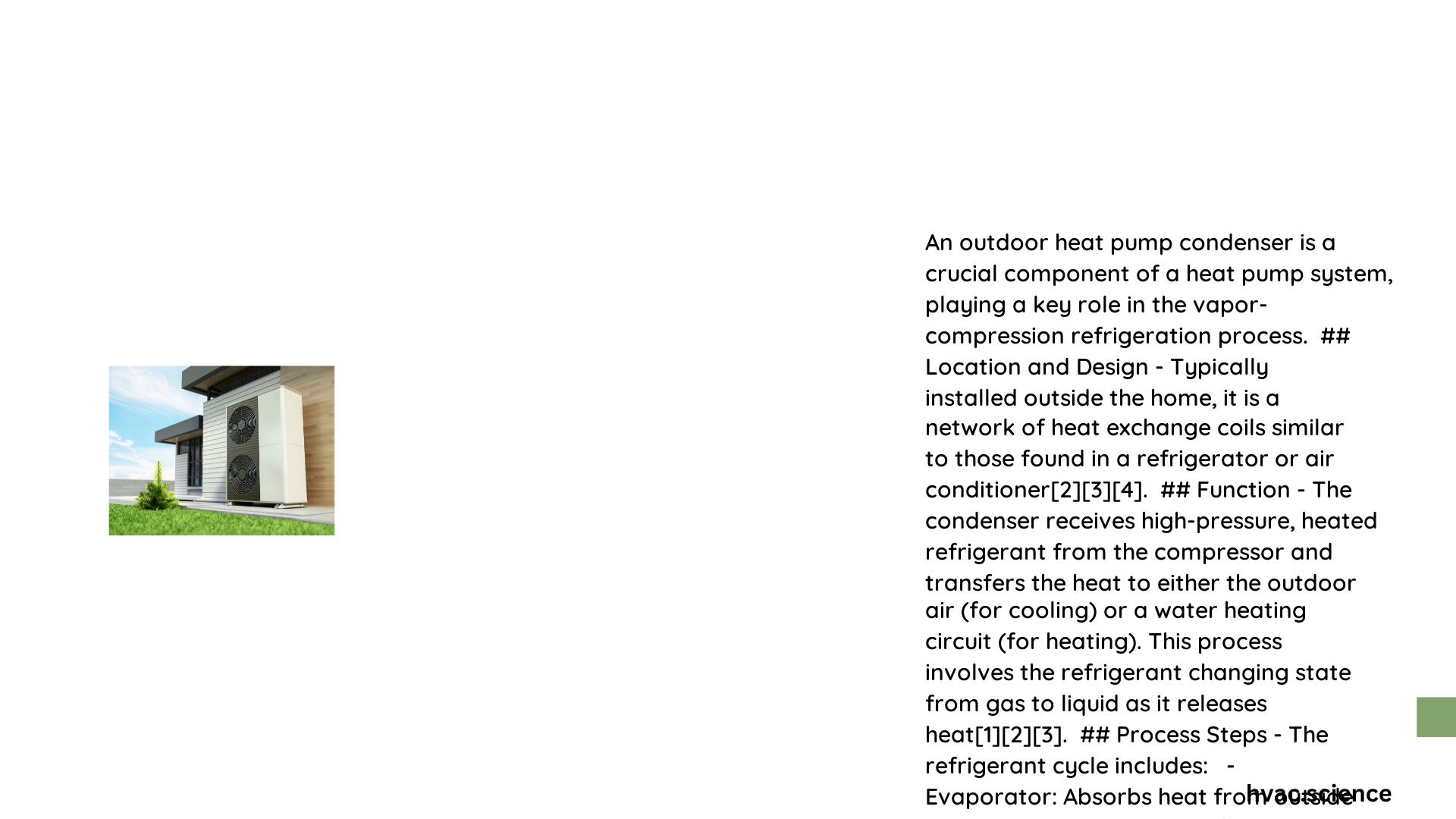An outdoor heat pump condenser is a critical component of home heating and cooling systems, responsible for transferring thermal energy between indoor and outdoor environments. This sophisticated device plays a pivotal role in maintaining comfortable temperatures while offering energy-efficient performance across various climatic conditions, making it an essential investment for homeowners seeking sustainable and cost-effective temperature control solutions.
What Makes an Outdoor Heat Pump Condenser Essential?
Outdoor heat pump condensers represent the external unit of a heat pump system, functioning as the primary mechanism for heat exchange. These units are engineered to extract heat from outdoor air during winter and release heat during summer, providing versatile temperature management for residential spaces.
How Do Efficiency Ratings Impact Performance?
SEER2 Rating Explained
- Measures cooling efficiency
- Minimum standard: 14.3 SEER2 as of January 2023
- High-efficiency models: 17-22 SEER2 range
| SEER2 Rating | Energy Efficiency Level | Potential Cost Savings |
|---|---|---|
| 14-15 | Standard | Baseline |
| 16-17 | Good | 10-15% savings |
| 18-22 | Excellent | 20-30% savings |
What Factors Influence Outdoor Heat Pump Condenser Selection?
Key Considerations
- Home square footage
- Local climate conditions
- Existing ductwork compatibility
- Budget constraints
- Energy efficiency goals
How to Ensure Proper Installation?
Critical Installation Steps
- Select appropriate location
- Ensure level ground surface
- Maintain minimum clearance requirements
- Professional electrical connections
- Proper refrigerant charging
What Maintenance Practices Maximize Longevity?
Recommended Maintenance Checklist
- Clean condenser coils quarterly
- Inspect electrical connections annually
- Check refrigerant levels
- Remove debris around unit
- Lubricate moving parts
How Noisy Are Modern Outdoor Heat Pump Condensers?
Decibel Level Comparison
- Low-end models: 40-50 dB
- Mid-range models: 50-60 dB
- High-noise models: 60-70 dB
What Are Potential Cost Implications?
Investment Breakdown
- Initial unit cost: $2,500 – $7,500
- Installation: $1,000 – $3,500
- Annual maintenance: $150 – $300
- Potential energy savings: 30-50% compared to traditional HVAC
Advanced Performance Considerations

Technology Innovations
- Variable-speed compressors
- Smart temperature modulation
- Enhanced refrigerant management
- Improved heat exchange mechanisms
Environmental Impact
- Reduced carbon footprint
- Lower greenhouse gas emissions
- Enhanced energy efficiency
- Sustainable heating/cooling solution
Professional Recommendations
Expert Tips
- Always consult HVAC professionals
- Consider local climate specifics
- Prioritize energy efficiency ratings
- Invest in regular maintenance
- Choose reputable manufacturer brands
Reference:
– Energy Star Heat Pump Guidelines
– Department of Energy HVAC Recommendations
– HVAC Industry Standards
